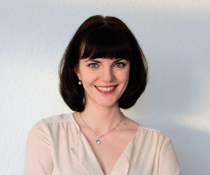
BIGSSS-departs Ph.D. Fellow, Cohort 2017
Dissertation topic
A Social-Cognitive Approach to the Socioeconomic Gap in Achievement: The Effects of Growing up in Economically Challenging Environment on Self-Efficacy, Problem-Focused Coping Potential and Attribution of Success and Failure
Dissertation abstract
Despite numerous attempts to reduce socioeconomic disparity in education, the gap in educational attainment and expectations among students with different socioeconomic backgrounds persists. This thesis is an attempt to extend our understanding of the social-psychological mechanisms that could explain this gap and inform solutions that would promote greater equality in education. It presents three manuscripts, which together propose that (1) the link between socioeconomic background and educational attainment can be explained by self-efficacy beliefs, and (2) childhood socioeconomic status and self-efficacy bias the process of judgement that precedes achievement-oriented behaviour. Building on the existing literature and research, in the first study I assess the roles of self-efficacy antecedents in the relationship between socioeconomic background and educational expectations. The findings demonstrate that self-efficacy antecedents fully explain the effects of income, social class, and primary caregiver’s education on educational expectations of students. Further, in a theoretical piece, I propose that pre-existing self-efficacy beliefs guide the selection and interpretation of the immediate information relevant in the process of appraisal of problem-focused coping potential. Finally, building on the results of the first study and the proposed theoretical framework, I test the effects of childhood status on the appraisal of coping potential and attribution of the outcome when people solve cognitive tasks. The findings demonstrate that the effect of childhood status varies across tasks with different difficulty and among people who succeeded and failed. I situate these findings within broader research on socioeconomic disparity in education and discuss their implications for theory, research, and practice.
Current Job
Economic and Social Research Institute
Postdoctoral Research Fellow
